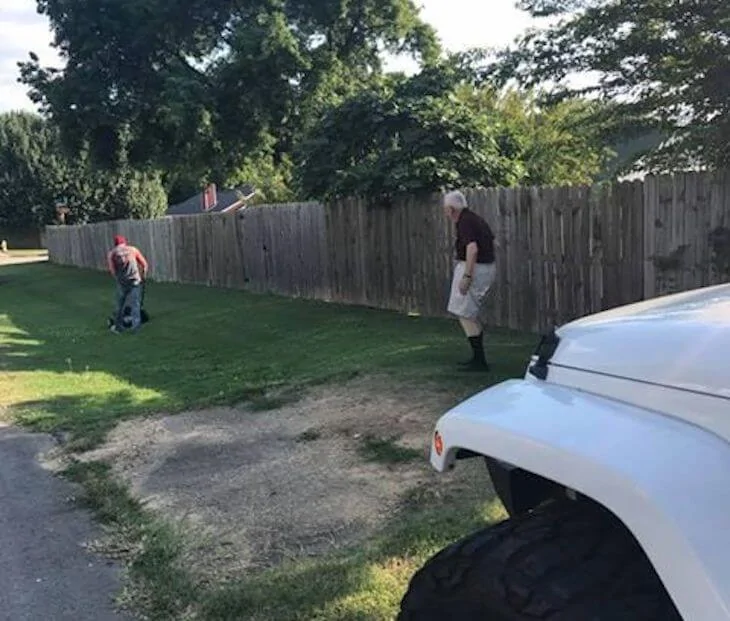The value of respecting those who have traveled further than us is one of the fundamental values instilled in us as children. This crucial stage of our development should be ingrained in our minds for the rest of our lives.
It is crucial that we help those among us who need it the most, especially our senior citizens, as part of our efforts to strengthen the fabric of our community.
A recent example of Chris Carter using this strategy was when he offered to help an elderly man in need.

Respecting older people requires more than just offering physical assistance; it also requires empathy, consideration, and in-depth familiarity with their circumstances and needs.
Elderly people have frequently experienced great hardships throughout their lives, and as they enter their golden years, they may experience a variety of illnesses and impairments. Because of this, we must always treat them with grace and dignity.
Developing true friendships with people of different ages can also be life-changing. As a result, everyone will benefit as we develop new perspectives on society’s challenges.
The next generation has been given the responsibility of caring for our elderly brothers and sisters.
Making the world more hospitable is something we can do to actively support their well-being and care while also teaching the next generation priceless life lessons.
Additionally, these deeds demonstrate a larger ethos of empathy and compassion for our fellow humans—a quality we should all strive to demonstrate every day.
Chris and his family were on their way when they noticed a senior citizen attempting to manage the overgrown grass around a nearby property.
Chris eagerly accepted the opportunity to help the elderly man, stopping in his path and moving forward to do so.
His wife, Tara, was deeply touched by his generosity. She was moved by the depth of his empathy, which increased her admiration for him.
Even the smallest charitable deeds have a big impact. Chris demonstrated the depth of his generosity by making a compassionate and loving effort to help someone who was in need.

Although Tara had long known her husband to be giving, his deeds that day left her speechless. His benevolence and generosity served as a constant reminder of the importance of consideration and empathy in all interpersonal relationships, regardless of their scale.
As she described her husband’s selfless act of delaying their travel to help the elderly man, Tara grinned contentedly. A lasting impression was made on the young mind by this story’s illustration of the important lesson in such behaviors.
Chris provides a model for us all, outlining a plan for how we can assist our fellow humans when they are in need as an embodiment of compassion and regard.
Chris set a great example for the younger generation by exemplifying the value of empathic thought in action. He showed through his actions how compassion can transform people’s lives.
His action went beyond a polite gesture to highlight the significance of these qualities in contemporary society and their continued applicability in the years to come.
This tale serves as a potent reminder of the immense power that even the smallest deeds of kindness have the capacity to possess. A monument to the persistence of goodness in our lives, waiting for our embrace, the story illustrates the lesson that even the most modest deeds can have far-reaching effects.
Due to her husband’s exceptional behavior, Tara hoped that her son would take lessons from these deeds and continue Chris’s legacy of generosity.

